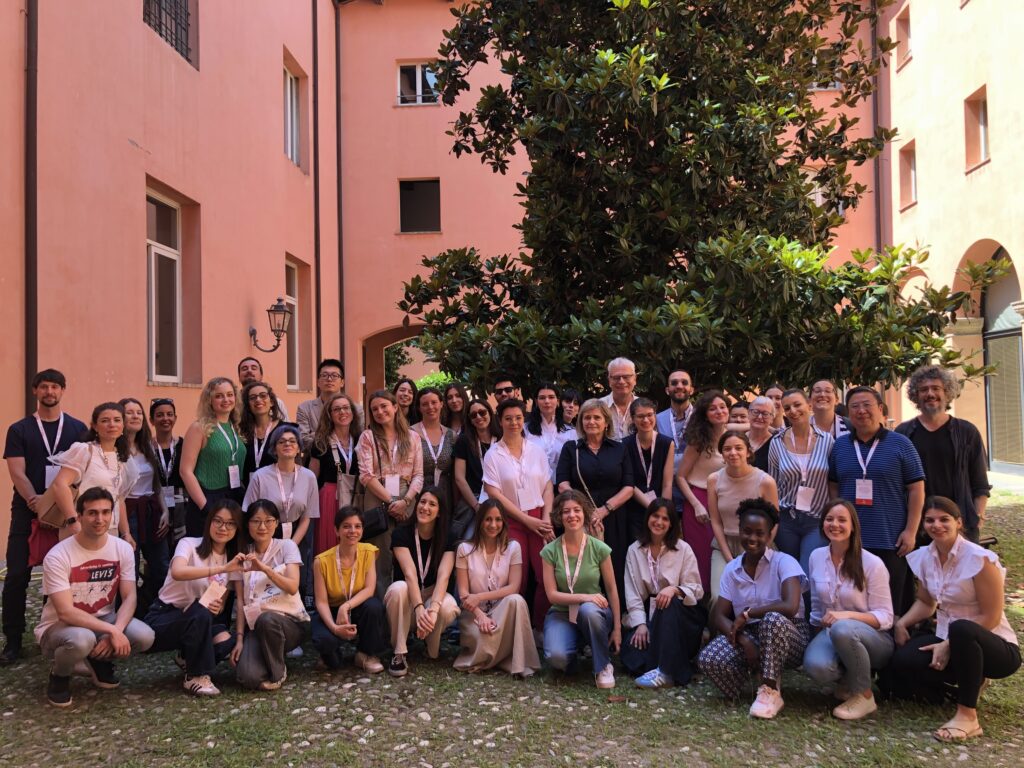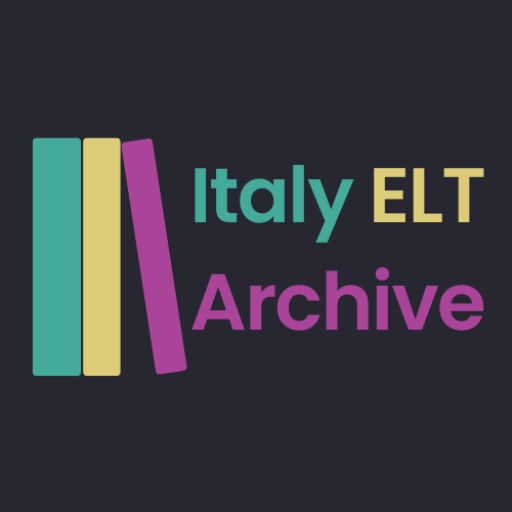On 4 June 2024, Emanuela Tenca talked about the Italy ELT Archive at the University of Modena and Reggio Emilia, in one of the presentation sessions for PhD students and young researchers attending the sixth edition of the Summer School in Digital Humanities. The Summer School, this year titled “Digital Humanities and Digital Communication: Challenges and opportunities of interacting with and through technology”, is directed by Professor Marina Bondi, and it is organised in the context of the Doctoral Programme in Human Sciences in Modena.
In Emanuela Tenca’s presentation, the design of the Archive was illustrated considering aspects related to the theoretical framework applied for analysing the primary sources in the database, as well as the technical features of the database itself, which taps into the affordances of WordPress combined with the Tainacan plug-in. In order to exemplify the contents of the Archive and effective ways for browsing it, emphasis was given to the Books catalogue, describing not only the components of the bibliographic entries, but also how these can be explored using the Tainacan faceted search interface.
The presentation of the Italy ELT Archive at the 2024 Summer School was an invaluable opportunity for disseminating information about the project, obtaining useful feedback, and learning more about the potential of technological advancements in terms of emergent fields of study, new tools and resources for human sciences, and innovative forms of collaboration in research.

Group photo of participants, lecturers, and organisers at the 2023 Summer School in Digital Humanties in Modena (photo credits Summer School in Digital Umanities Unimore)
On the first day of the Summer School, Massimo Riva (Brown University) dealt with the potential of “playing games” with GenAI for the translation of literary classics from text to text and from text to image. Philip Cook (University of Strathclyde, Glasgow) considered issues concerning the national and transnational dissemination of knowledge of Italian medicine between 1770 and 1830, and implications of conducting research in this domain in today’s digital age. On the second day, Gabriel Hankins (Clemson University, South Carolina) discussed recent developments in digital humanities publication platforms and considered ways in which multimodal AI and similar tools may improve the interactive and dialogic properties of texts in the human sciences. Cristoph Draxler (Ludwig-Maximilian University, Munich) talked about the automatic evaluation of spoken language performance of L2 learners by presenting the results of a pilot study. On the third day, Marcus Müller (University of Darmstadt) investigated understanding in digital linguistics, based on annotation as the primary digital method for scientific investigation. Josef Schmied (Chemnitz University of Technology) problematised the relationship between specialised discourse and Large Language Models by considering strengths and weaknesses, opportunities and threats of using tools such as ChatGPT in writing academic texts. On the fourth day, Matteo Fuoli (University of Birmingham) tackled critical questions regarding the language of polarisation on social media by adopting a combination of corpus linguistics, discourse analysis, and other experimental methods. Janina Wildfeuer (University of Groningen) showed how multimodal research can contribute to the fine-grained analysis of texts in the digital humanities at the level of both theory and methodological approaches. On the fifth and last day of the summer school, Wu Ping (Beijing Language and Culture University) provided a comprehensive overview of the application of GPT in translation and its potential impact on the industry.
The lectures given by the international experts invited to the Summer School offered fresh insights into the multiple opportunities and challenges presented by current developments in technology. Moreover, the workshops following some of the lectures gave participants the unique opportunity to gain some practical experience with the tools and resources introduced by the experts in their presentations.
For more information about the program of the 2024 Summer School as well as past editions (2019-2023), please visit the official website.
